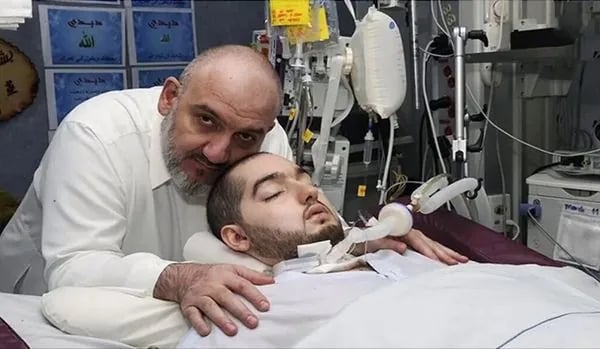Saudi Arabia’s ‘Sleeping Prince’ Dies at 36 After 20 Years in Coma, Ending a Story of Hope and Devotion
Prince Al Waleed bin Khaled bin Talal Al Saud, known to many across the Arab world as the “Sleeping Prince,” has passed away at the age of 36 after spending nearly two decades in a coma. His story, marked by tragedy, devotion and deep faith, touched hearts around the globe.
Thinkbrief
7/20/20253 min read


In 2005 when Al Waleed was just 15, he was studying at a military academy in London. A sudden and devastating car accident left him with severe brain injuries and internal bleeding. From that moment on, his life changed and so did the lives of everyone who loved him. He slipped into a coma that would last for the rest of his life.
After the accident Al Waleed was flown back to Riyadh where he was admitted to King Abdulaziz Medical City. Doctors around the world were consulted. Specialists from the United States Europe and the Middle East examined his case. Yet despite every medical effort, his condition never improved significantly. He remained unconscious, unable to speak, move or respond beyond rare and faint gestures that gave his family hope.
It was his father Prince Khaled bin Talal who became the center of that hope. Over nearly 20 years he refused to give up on his son. While doctors advised withdrawing life support as early as 2015, Prince Khaled held firmly to his belief that only God could decide the moment of death. He stood by his son’s side with patience, love and unshakable faith.
The world watched as this quiet vigil became something extraordinary. Videos of Al Waleed occasionally moving a finger or lifting his hand, tiny actions that would mean little in another context, were celebrated as signs of life. One such video shared in 2019 showed him apparently responding to his name. That moment, brief as it was, sparked tears and prayers across the region.
What made the story so powerful was not just the medical mystery but the deeply human emotions behind it. A father’s refusal to let go, a family’s choice to keep believing and a nation that came to see Al Waleed as more than just a royal. He became a symbol of loyalty, love and the kind of hope that lives even when science no longer does.
Over the years millions followed his story online. The hashtag SleepingPrince often trended during national holidays or religious celebrations when the family would share updates or photos from his hospital room. These glimpses into his quiet world brought people together in prayer and reflection. Even those who had never met him felt a connection to the boy who never woke up.
On July 19 2025 after nearly two decades in that state, Prince Al Waleed passed away. The news was announced by his father who shared a message filled with both sorrow and surrender. He quoted a verse from the Quran praying for his son’s soul and thanking everyone who had stood by them over the years. “With hearts full of faith” he wrote “we return him to his Lord.”
The next day funeral prayers were held. Men gathered at Imam Turki bin Abdullah Mosque after Asr prayer while women prayed at King Faisal Specialist Hospital following Dhuhr. In traditional Saudi fashion the palace opened its doors for three days of mourning. Visitors came from across the country and beyond to pay their respects.
Messages of condolence poured in. Religious leaders political figures and ordinary citizens offered words of comfort to Prince Khaled and his family. Crown Prince Mohammed bin Salman extended official condolences. The Global Imams Council shared a tribute honoring the perseverance shown by Al Waleed’s family and the light his story brought into the world.
Though the prince spent most of his life in silence his story spoke loudly. For many it raised questions about life faith and the limits of medicine. Was it right to keep someone alive for so long without knowing if they felt or heard or hoped? Was it fair to the patient or was it an act of extraordinary devotion? People debated and not everyone agreed but what united them was a sense of awe at the love that carried this family through unimaginable sorrow.
Medical professionals who followed his case noted that surviving in a coma for nearly 20 years is incredibly rare. Few patients endure such long term critical care. It was a testament to both medical advances and the resources and resolve of his family. But more than that it was a testament to love, deep, unconditional, unrelenting love.
Now that Prince Al Waleed is gone many are reflecting on the legacy he leaves behind. It is not a legacy of words or accomplishments but one of quiet endurance. A young life interrupted but not forgotten. A father’s prayer answered not in recovery but in peace. And a story that has stirred something very human in everyone who followed it.
His passing closes a long and painful chapter not just for his family but for all who watched and waited with them. Yet even in sorrow there is comfort in knowing that his struggle is over. The Sleeping Prince is finally at rest.